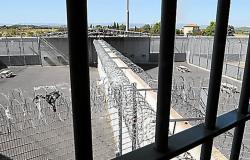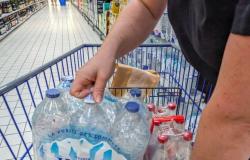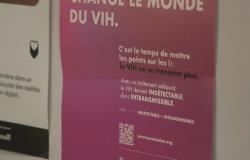The Russian Parliament has just sealed a spectacular increase in military spending for 2025. With a planned increase of 30%, this budget reflects a Kremlin focused on the war effort, despite a heavy economic impact on the population.
Explosion in military spending: a historic burden
Pour 2025Russia spends nearly 119 billion euros on its Defense, or more than 6% of its GDP. These expenses represent 40% of the federal budget, a figure not seen since the fall of the USSR in 1991. This bill, validated by both houses of Parliament, will soon be promulgated by Vladimir Putin.
This budget already the trend of 2024, where military spending had already jumped by 70%, reaching 8.7% of GDP. Such a reorientation testifies to the Kremlin's total commitment to the Ukrainian conflict, described as “global in nature” by Vladimir Putin a few days ago, thus exacerbating tensions with the West.
Since 2022, the Russian economy has been transformed to meet military needs. The military-industrial complex has expanded rapidly, with the massive recruitment of hundreds of thousands of workers. However, this strategy comes at a cost: galloping inflation.
Indeed, despite a key rate raised to 21% by the Central Bank, inflation is around 8.5%, more than double the target. This rise in prices has a serious impact on the purchasing power of Russian citizens, already weakened by Western economic sanctions. Budgetary priorities leave little room for social spending, worsening economic disparities.
Militarization of society: a strategic turning point
The militarization of Russian society is increasing. A decree signed by Vladimir Putin in September 2024 provides for a 15% increase in military personnel, bringing the army to 1.5 million soldiers, or 1 in 50 Russian assets.
This increase, coupled with a record budget, marks a clear break with post-Soviet budgetary policies. The objective is clear: consolidate Russia's position in a conflict where it opposes Ukraine and, indirectly, Western allies.
This colossal budget reflects an intensification of hostilities between Moscow and the West. Putin explicitly threatened to use weapons against countries supporting Ukraine. These statements, combined with Ukrainian strikes on Russian soil with Western long-range missiles, highlight a rise in geopolitical risks.
For Jean de Gliniasty, former ambassador to Russia, a “nuclear escalation remains unlikely”, but current tensions pose a growing threat to international stability. By investing massively in the army, the Kremlin seems ready to prolong the conflictat the cost of even more massive economic and diplomatic isolation.
International, Defense news
Military spending, Russia





